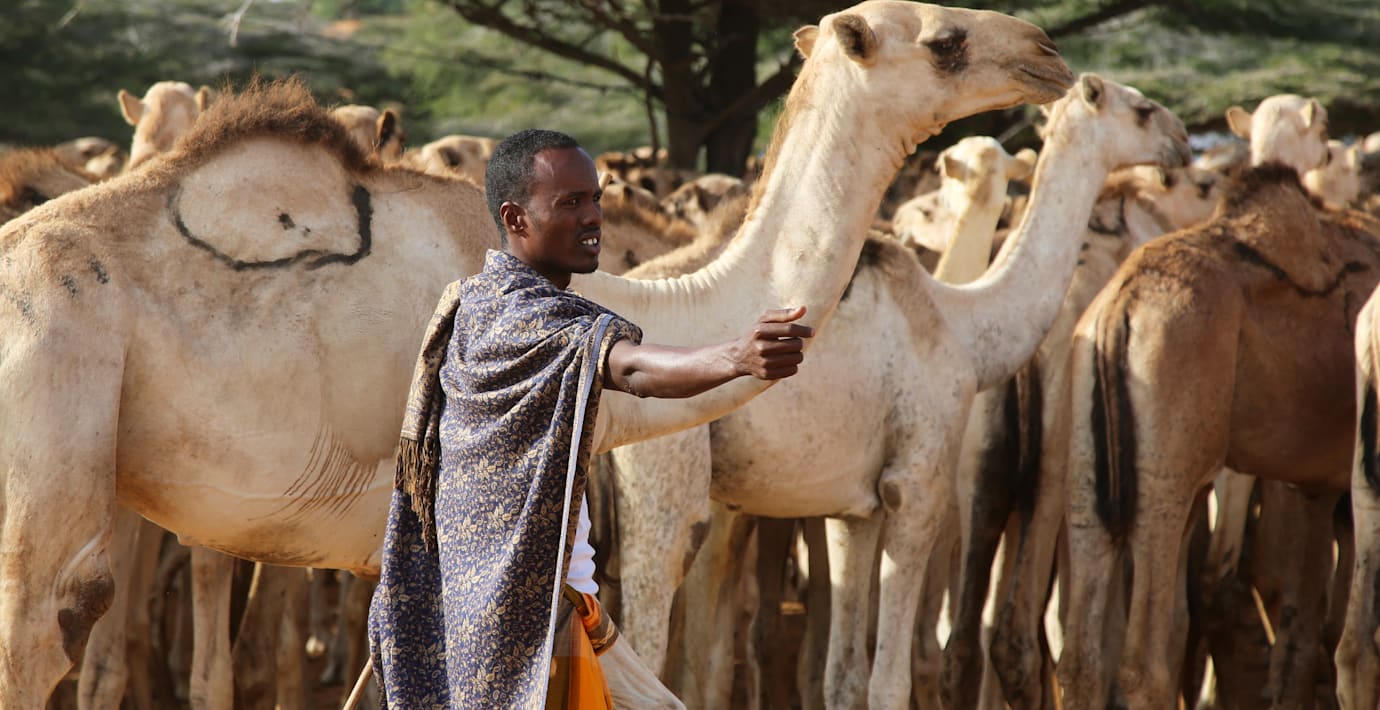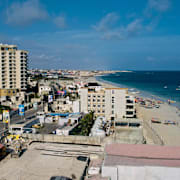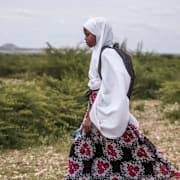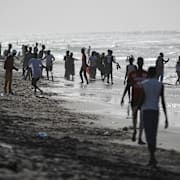
Efter årtionden av våld – turismen växer i Somalia
Turismen florerar i Somalia, men landet kämpar fortfarande med ett dåligt rykte.
I flera årtionden har våldsamma konflikter avlöst varandra i det östafrikanska landet. Fortfarande sprider den al-Qaida-kopplade terrorgruppen al-Shabaab skräck i stora delar av Somalia.
Men i huvudstaden Mogadishu har våldsdåd och attacker minskat drastiskt de senaste två åren, skriver AFP. På grund av det reser allt fler dit. Nyhetsbyrån har pratat med turisterna Sheryl och Richard från USA som säger att Somalia ”inte alls är som det man hör”.
– Vi går runt fritt och människorna är underbara, som människor brukar vara, och det är ett riktigt intressant ställe att besöka, säger Sheryl.
bakgrund
Al-Shabaab
Wikipedia (en)
Harakat al-Shabaab al-Mujāhideen, simply known as al-Shabaab, or by its state name, the Islamic Emirate of Somalia, is a Sunni Islamist militant and political movement based in Somalia. It is involved in the ongoing Somali Civil War as an Islamist group, regularly invoking takfir to rationalize its terrorist attacks on Somali civilians and civil servants. Allied to the pan-Islamist militant organization al-Qaeda, it is also in a more limited capacity active elsewhere in East Africa, and has forged ties with other insurgent groups like AQIM and AQAP.
Formed in the mid-2000s as a youth militia within the wider military wing of the Islamic Courts Union, al-Shabaab came to prominence during the 2006–2009 Ethiopian invasion and occupation of Somalia, during which it presented itself as a vehicle for the waging of armed resistance against the occupying Ethiopian army. In subsequent years, it gained popular support from Somalis and became a dominant force in south and central Somalia, defending large swathes of territory by fighting against the African Union Mission to Somalia and the Federal Government of Somalia, as well as the latter's transitional predecessor. Al-Shabaab gained international prominence due to its recruitment of foreign fighters, including fighters who are from Western countries. Countries including the United States, the United Kingdom, and the United Arab Emirates have designated it as a terrorist organization, and the United States has militarily intervened in order to fight against the group.
Between 2011 and 2013, a coalition of African Union forces, led by the Somali government, wrested a significant amount of territory from al-Shabaab, including the capital city, Mogadishu. During the same period, the group was plagued by internal conflicts over its leadership and ideological direction, which intensified when, in February 2012, al-Shabaab's leadership pledged allegiance to al-Qaeda. It suffered further military losses in 2014, as a result of Operation Indian Ocean, and the killing of its emir, Ahmed Abdi Godane. Several years thereafter, al-Shabaab retreated from the major cities, but it remained influential in many rural areas, and it prioritized guerrilla attacks over territorial acquisitions. It is responsible for many high-fatality attacks, including the 2013 Westgate attack, October 2017 Mogadishu bombings and the 2022 Somali Ministry of Education bombings. Apart from its activities in Somalia, the group also operates in East African neighboring countries, extending its insurgency to Kenya's border regions with its Jaysh Ayman wing, and carrying out a major incursion into Ethiopia in 2022. Attendant to its recent resurgence, it was estimated to have increased its combat strength to between 7,000 and 18,000 fighters during 2022.
Somalias huvudstad Mogadishu
Omni är politiskt obundna och oberoende. Vi strävar efter att ge fler perspektiv på nyheterna. Har du frågor eller synpunkter kring vår rapportering? Kontakta redaktionen



